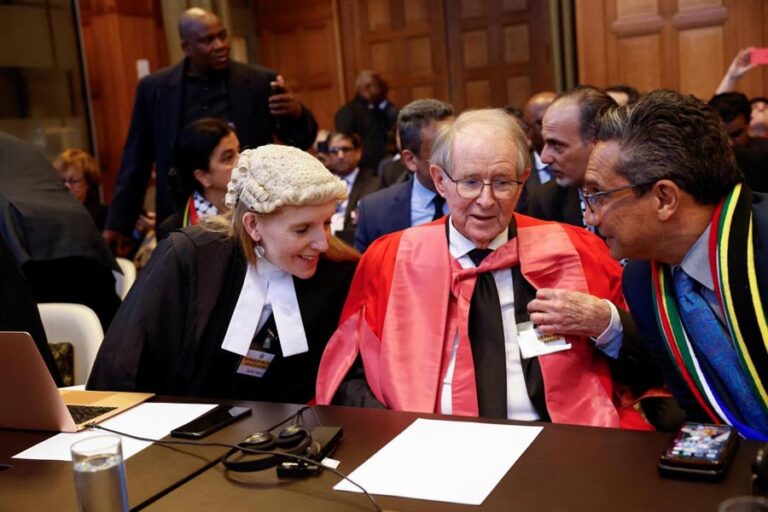News Desk, Kolkata : The recent verdict by the International Court of Justice (ICJ) regarding Israel’s military campaign in the Gaza Strip has sparked global discussions and raised concerns about accountability for alleged war crimes. The ICJ, comprised of 15 justices, unanimously declared that Israel must take immediate steps to halt any actions that could lead to mass killings in Gaza. In the wake of the ongoing humanitarian crisis in Gaza, the court emphasized the urgent need for international assistance and relief efforts to reach the ordinary people facing dire conditions.
The ICJ’s decision follows months of Israeli military operations in the Gaza Strip, which have been likened to acts of genocide. The court’s ruling echoes the call for an immediate cessation of hostilities and a commitment to international law. However, the Israeli government has openly rejected the allegations and continues its military campaign in various Palestinian territories, including the Gaza Strip.
While South Africa’s government hailed the ICJ verdict as a moral and diplomatic victory, experts remain skeptical about the practical impact of such rulings on powerful nations. Similar directives issued by the ICJ in the past, such as the call to halt Russia’s military campaign in Ukraine, have not been heeded, resulting in ongoing conflicts.
Palestinian Foreign Minister Riyad al-Maliki welcomed the ICJ decision as a triumph for “humanity and international law.” The ICJ’s stance aligns with recommendations from the European Union, urging Israel to abide by international law and prioritize the safety of its citizens and those in Palestinian territories.
The Israeli government, on the other hand, vehemently rejects the ICJ’s jurisdiction in the matter and denies any wrongdoing. Prime Minister Benjamin Netanyahu reaffirmed Israel’s commitment to protecting its citizens and maintaining military operations against Hamas until complete disarmament is achieved. Mark Regev, a senior advisor to the Prime Minister, dismissed the ICJ’s decision, stating that it does not have any binding effect on Israel.
In the backdrop of these international developments, the conflict in Yemen takes center stage, where Houthi rebels continue to target commercial ships in the Arabian and Red Seas, allegedly with support from Iran. Recent reports suggest that Iran is facing pressure from its ally, China, to exert control over the Houthi rebels and halt their attacks on commercial vessels. The geopolitical complexities of the region add a layer of uncertainty to the ongoing situation.
As tensions rise between Iran and the international community over the Yemeni conflict, there are indications that China may sever its economic ties with Iran if the Houthi rebels persist in their attacks. This potential economic fallout underscores the delicate balance between geopolitical alliances and economic interests in the volatile Middle East.
While the ICJ’s decisions bring attention to issues of justice and accountability, the practical enforcement of such rulings remains a challenge. The global community watches closely as powerful nations navigate complex geopolitical landscapes, balancing diplomatic relationships with their commitment to international law.
In conclusion, the recent ICJ verdict on Israel’s actions in Gaza has triggered a broader conversation about accountability, justice, and the role of international institutions. The interconnectedness of conflicts in the Middle East, from Gaza to Yemen, underscores the intricate web of geopolitical dynamics at play. As the world grapples with these complex issues, the pursuit of justice and lasting peace remains a formidable challenge on the global stage.
DISCLAIMER
Our news media denounces any form of bias and disapproves of sensationalism. The disseminated news is entirely educational and aimed at social awareness. Our media maintains absolute impartiality, adhering solely to the purpose of education and social consciousness.


